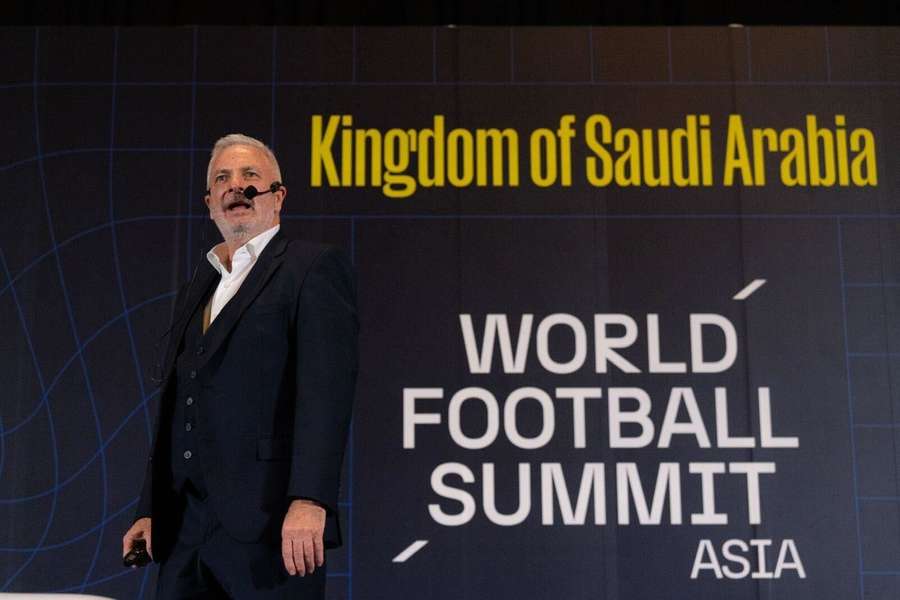Speaking with Flashscore via video call from his home in Scotland, Viola immediately cuts a composed, confident figure, even through a few thousand pixels.
A quick online search will tell you a little bit about his marquee deals, from working with Luis Figo and nearly getting Roberto Carlos in the Premier League, to breaking a then-British transfer record and facilitating French World Cup winner Christian Karembeu's big-money move to Middlesbrough from Real Madrid in 2000.
Now, noticing a growth in an industry where you can study for a BA degree at university (while he had to take out a £100,000 bond in the early 1990s), John wants to give back by breaking down barriers and providing more of a support network to budding football agents, something that was evidently lacking when he took the plunge in 1995.
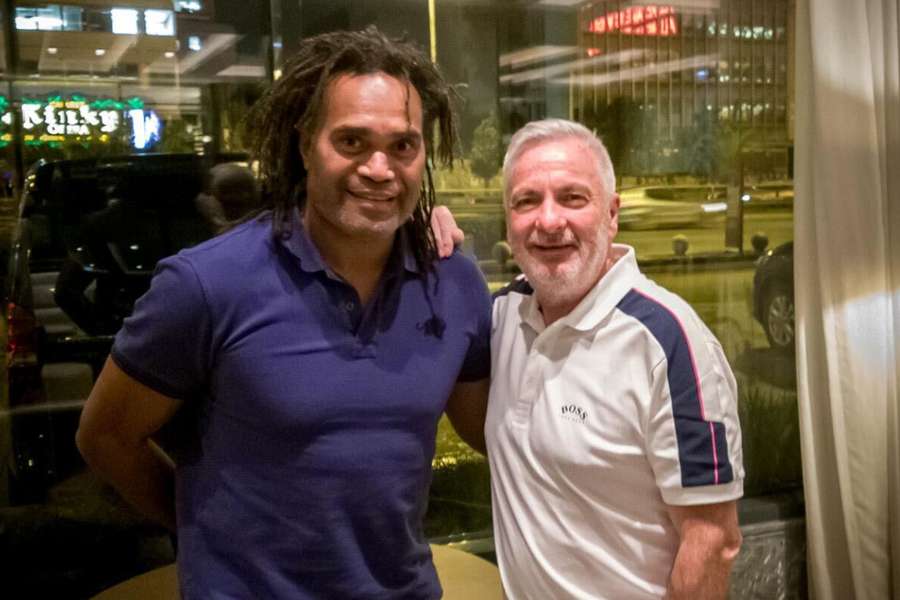
Alongside his 451 Football Consultancy, John has established the JV Academy, which aims to help the next generation flourish.
"First and foremost, when somebody says to me, 'Look, did you have an ambition to be a football agent when I was younger?', that wasn't the case with me," he says when asked why he gave up a comfortable financial career to become an agent.
"Obviously, I was a passionate football supporter - I love football. I had many jobs before I got into financial services. I had a financial services business, which basically looked after people and their money, and I had quite a lot of high-net-worth individuals. And of course, that encompassed the football fraternity.
"So I was looking after football players' finances, and the way it started was one particular player said to me: 'John, you're a businessman, is there any way that you can do my deal? I don't have an agent. In fact, there weren't an awful lot of agents around at that time.
"I'd been involved with contracts and dealing with people at high levels. And here I was, trundling away to help people, players initially, to do contracts. And that was way before they even got the licence. So I sort of fell into it, if you like.
"It wasn't something that the aspirations were. But when I got into doing those deals, I really thought, 'hey, I like this'. I like the buzz of being in and around the football community, and I like the buzz of doing the deals in boardrooms rather than talking about financial services.
Baptism of fire
But it wasn't until an encounter with one of British football's most beloved names that Viola realised how much of a taste he had for the job.
"My very first colourful character I dealt with in one of my very first deals was Brian Clough, which was a baptism of fire. He wasn't particularly interested in agents or what they represented.
"It was one of the first ones I'd done, the team that he was going to had just sent him a contract and told him to sign it, and he was just going to do it.
"The clubs had a lot more control during those times, but I took someone along to take a look at it, and I improved his deal. I got a buzz out of that, and I thought: 'I could help a lot of players here'. I could help many players get what they were worth. That's what I really liked about it."
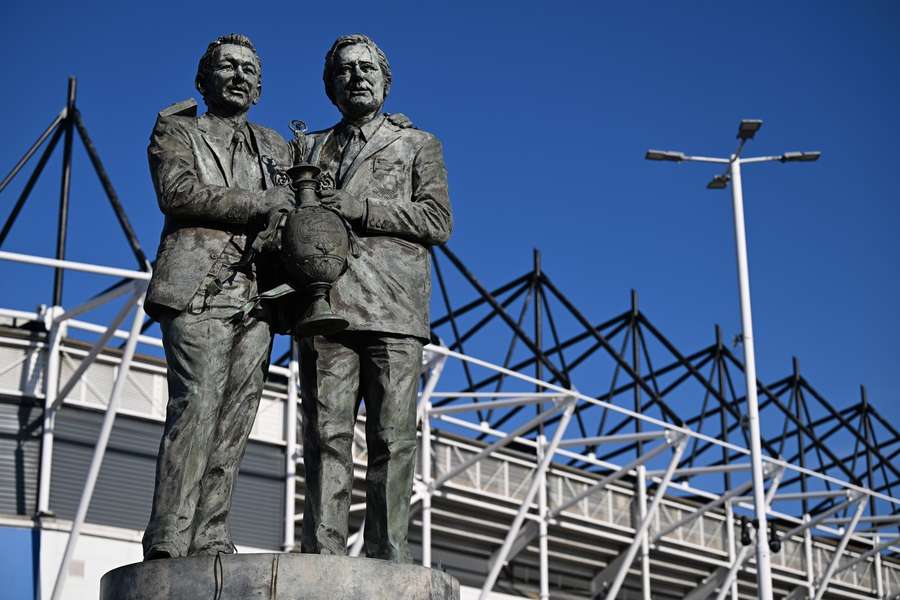
Yet it wasn't a bed of roses, and Clough, being Clough, needed some persuading: "I interrupted his holiday in Majorca, which didn't go down too well," he adds.
"He basically, in no uncertain terms, said, 'Who are you? Why are you there with this player? He doesn't need an agent. Just go home, get back up the road to Scotland, son.' That's the way he spoke to me, only it was a bit more colourful than that.
"So I didn't win him over. It was actually his assistant, Peter Taylor. He managed to persuade Brian, and we managed to get that deal done."
'Not a get-rich-quick scheme'
Viola boasts the distinction of being one of the first professional football agents in the country.
One of some 700 colleagues in the mid-90s, there are now some 7,000 agents operating in the UK alone. So, how do you go about standing out in an increasingly competitive - albeit potentially very lucrative - business area, and what should someone be asking themselves before upping sticks and trying to get their foot in the door?
"You've got to do your research about what an agent does to see if it fits for you," he says.
"I always start by saying it's not a get-rich-quick scheme that we're involved in. This is a serious business.
"It takes a lot of time, passion and effort, and it's very, very challenging. And I try to fill them in with that. Not in a negative way, because I don't want people to be negative, but I try to fill them with the realism that this is a job where only a certain percentage will make it.
"The second big thing is, does it fall into who you are as a type of person?"
Then there's the FIFA exam required to obtain your licence to work, which, despite being an open-book test, has a pass rate of below 50 per cent for individuals.
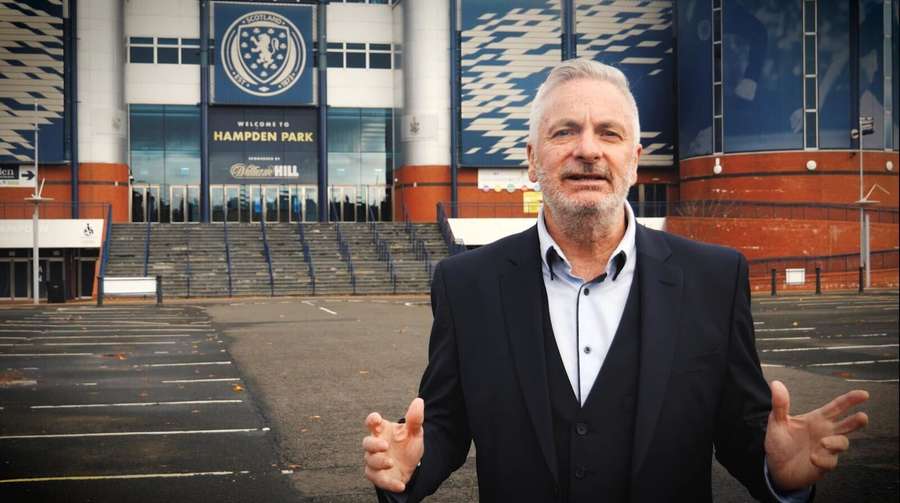
"You need the exam before you can actually get into becoming an agent, but that's only a very small part of the business, albeit if you don't have that, you can't become an agent.
"The FIFA exam is a difficult test. There are 808 pages of regulations.
"The very first step to becoming an agent is you need to pass that test, because if you don't have an agent's licence, you can't then go and speak to clubs or players. In fact, you can't do anything.
"We looked at this with a FIFA lawyer and also a course creation professor from a university in England, and we thought, how are we going to get the man in the street to pass this?
"We looked at these and we put together a specific course to help people pass, and we're proud to say that we've had an over 80 per cent pass rate.
"The reason is simple: we care about the people who come on the course because I aim to be doing business with them. That's our business model: to teach people to get their license, mentor them to get to an elite level, and share business. Because everybody who passes a test, that's only the start of the journey.
"But the actual job is not about the degree or the license. You need to have those, but it's about the practicalities, and this is where we differ, because we know what it takes to actually become a successful agent, and the practicalities part is much, much bigger than the theory.
'We're still doing the job'
"That's why we stand out, because we're still doing the job. It's not like I've become a professor. I'm still phoning clubs, I'm still getting challenges, I'm still getting knockbacks.
"They don't tell you, when you're sitting your exam, about you driving 300 miles to see a young prospect only to find the game has been called off.
"They don't tell you about a deal falling through and you being devastated after you've travelled all the way to China. They don't tell you about how a player's calling you at one in the morning, distraught because he had a big fight with his wife. I could go on. So the practicalities of the job are what it's really all about, and that's where we come in."
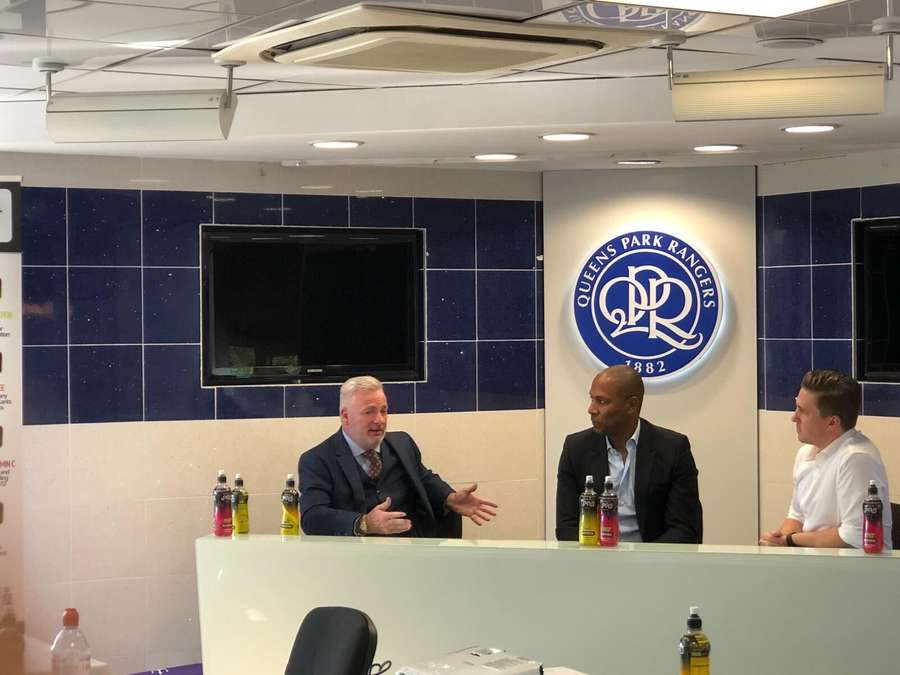
A wry smile then appears over the Glaswegian's face as another story pops into his head.
"There was a team in Scotland, and they had a really, really good Danish striker," he grins. "He started off playing unbelievably for this team.
"Everyone thought he was going to go to the Premier League, and then he took a dip in his form. He was there with just his wife.
"His manager asked him what the problem was, and his answer was that they missed their dog. Believe it or not, the manager asked me to go and collect his dog, so I got one of my guys to fly to Denmark to collect this British bulldog.
"And here's the thing - and I didn't know this - dogs have to have passports, and his had run out. It takes weeks to process but the club were adamant the dog needed to come immediately.
"My agent had to smuggle the dog under the car, and he was going through passport control, praying that the dog wouldn't bark. He eventually got it through passport control and all the way to Scotland.
"The club and couple were ecstatic. The boy came back up and started playing again."
Agents' tough reputation
It's this level of personal attention to detail, focusing on the player as a human being rather than just an expensive commodity, that goes undetected in some people's ideas of what makes a successful agent.
Fans' experience with agents often focuses on the negatives, notably when it involves a star player from their team leaving for a bigger club and, naturally, a bigger paycheck. Is it fair to say, then, that football agents get a tough rep for focusing mainly on money matters?
"Agents do things that you don't see," he explains. "Some players don't need it, but a lot do.
"If you're a good agent and you're on that journey and you're in the trenches with them, that's the part the public misses.
"You only see or hear about agents when they're doing a big deal with your club and taking money out of it and everything. What you don't hear is that there are many really good, solid people putting in a lot of time and effort who aren't earning the big millions from deals.
"They're earning less than maybe the journalists, but they love the business. But like any business, there's good and bad.
"The only difference is that ours is emotional about clubs, and they want somebody to blame if they lose a player."
Leaving a legacy
At the end of the day, after hundreds of successful deals, which John says he can "now finalise in his sleep", he's ready to put something back into the community.
"I come from the East End of Glasgow with absolutely nothing," he says with pride.
"I've visited 84 countries and done business in 20 of them - if somebody told me that when I was 16, where I come from, I'd have thought they were joking.
"I'm privileged to get into this business, and I want to teach people that it's not a closed shop. I've opened the doors for them to show them how they can get into this business, and I'm passionate about it.
"I'm more passionate about a guy making it as a football agent than doing a deal - I want to pass on my knowledge and leave a legacy.
"At my funeral, alongside my family and friends, I want there to be a thousand agents there as well."
Click the links to learn more about the JV Academy and 451 Football Consultancy.
